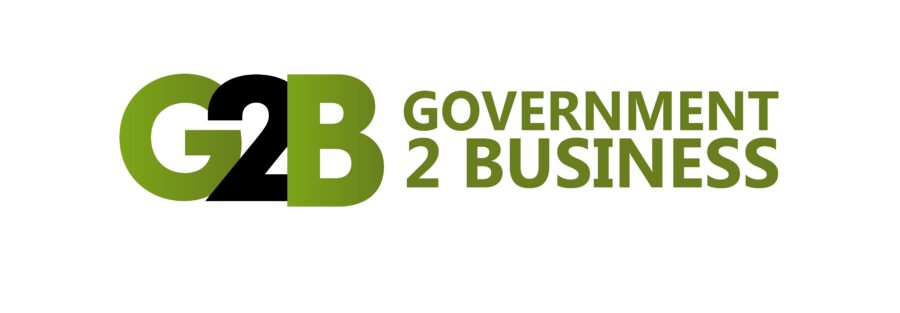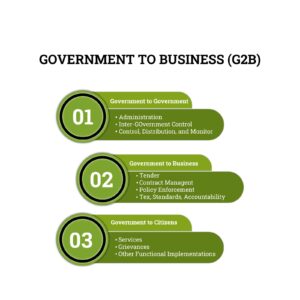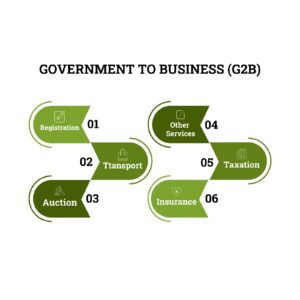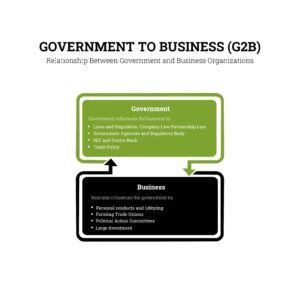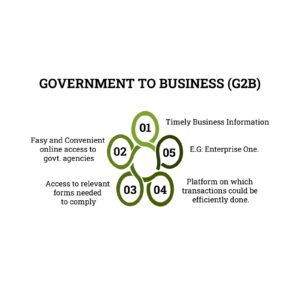Introduction:
In the era of digital transformation, the relationship between government and businesses has undergone a significant paradigm shift. The advent of technology has given rise to Government-to-Business (G2B) interactions, fostering an environment conducive to economic growth, efficiency, and transparency. This blog explores the dynamics of G2B interactions, the role of technology, and the impact on businesses and government alike.
Understanding Government-to-Business (G2B):
Government-to-Business refers to the electronic communication and interaction between government entities and businesses. This collaboration aims to streamline processes, enhance efficiency, and create a more business-friendly environment. G2B encompasses a wide range of activities, including regulatory compliance, licensing, permits, taxation, and procurement.
Key Components of G2B: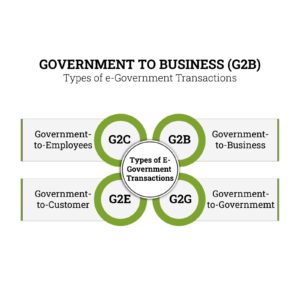
Digital Platforms and Portals:
Governments worldwide are investing in digital platforms and portals to provide businesses with a centralized hub for information and services.
Online portals simplify procedures, offering businesses a one-stop-shop for tasks such as registering a new business, renewing licenses, and accessing relevant regulatory information.
E-Government Services:
Electronic government services enable businesses to interact with government agencies seamlessly.
E-filing for taxes, permit applications, and other regulatory compliance processes contribute to reduced paperwork and faster turnaround times.
Data Integration and Interoperability:
Integration of data across various government departments ensures a cohesive and efficient G2B ecosystem.
Interoperability enables businesses to submit information once, reducing redundancy and improving overall data accuracy.
Regulatory Compliance and Reporting:
G2B initiatives focus on simplifying regulatory compliance for businesses.
Streamlined reporting processes and standardized formats facilitate easy submission of required documentation, reducing the burden on businesses.
E-Procurement and Contracting:
Governments are increasingly adopting electronic procurement systems, making the bidding and contracting process more transparent and accessible.
E-procurement systems promote fair competition, reduce corruption, and open up opportunities for a broader range of businesses.
Benefits of G2B Initiatives:
Improved Efficiency:
Digital platforms and streamlined processes save time and resources for businesses and government agencies alike.
Real-time processing and automated workflows lead to quicker decision-making.
Enhanced Transparency:
G2B initiatives promote transparency in regulatory processes, reducing the likelihood of corruption.
Businesses gain greater visibility into government procedures, fostering trust and accountability.
Cost Savings:
The shift to digital platforms reduces administrative costs associated with manual processes, paperwork, and physical infrastructure.
Businesses benefit from lower compliance costs and more straightforward regulatory requirements.
Increased Competitiveness:
G2B interactions open up new opportunities for businesses, promoting innovation and competitiveness.
Small and medium enterprises (SMEs) can compete on a level playing field with larger corporations.
Challenges and Considerations:
Cybersecurity Concerns:
The digital nature of G2B interactions raises cybersecurity concerns. Governments must prioritize robust cybersecurity measures to protect sensitive business and government data.
Digital Inclusion:
Ensuring that all businesses, including smaller enterprises, have access to and can navigate digital platforms is crucial. Efforts should be made to bridge the digital divide.
Interoperability Issues:
Governments need to address interoperability challenges to ensure seamless integration between various departments and systems.
Conclusion:
Government-to-Business interactions represent a transformative force in the modern economy. As governments worldwide continue to embrace digitalization, the G2B landscape will evolve, bringing forth new opportunities and challenges. By fostering collaboration, transparency, and efficiency, G2B initiatives play a pivotal role in shaping a business-friendly environment that nurtures economic growth and innovation. The continued refinement and expansion of G2B interactions promise a future where businesses and governments work hand

